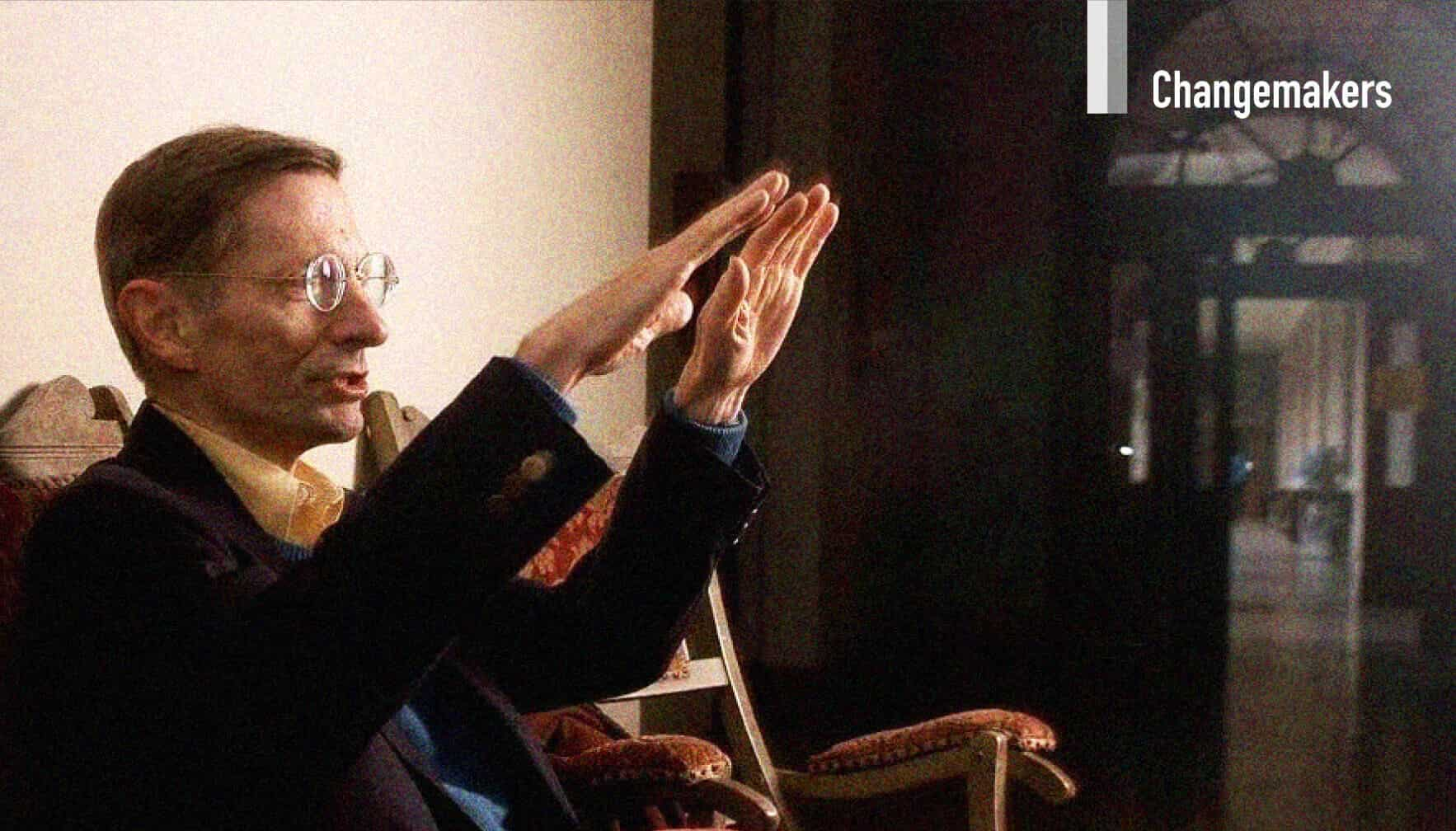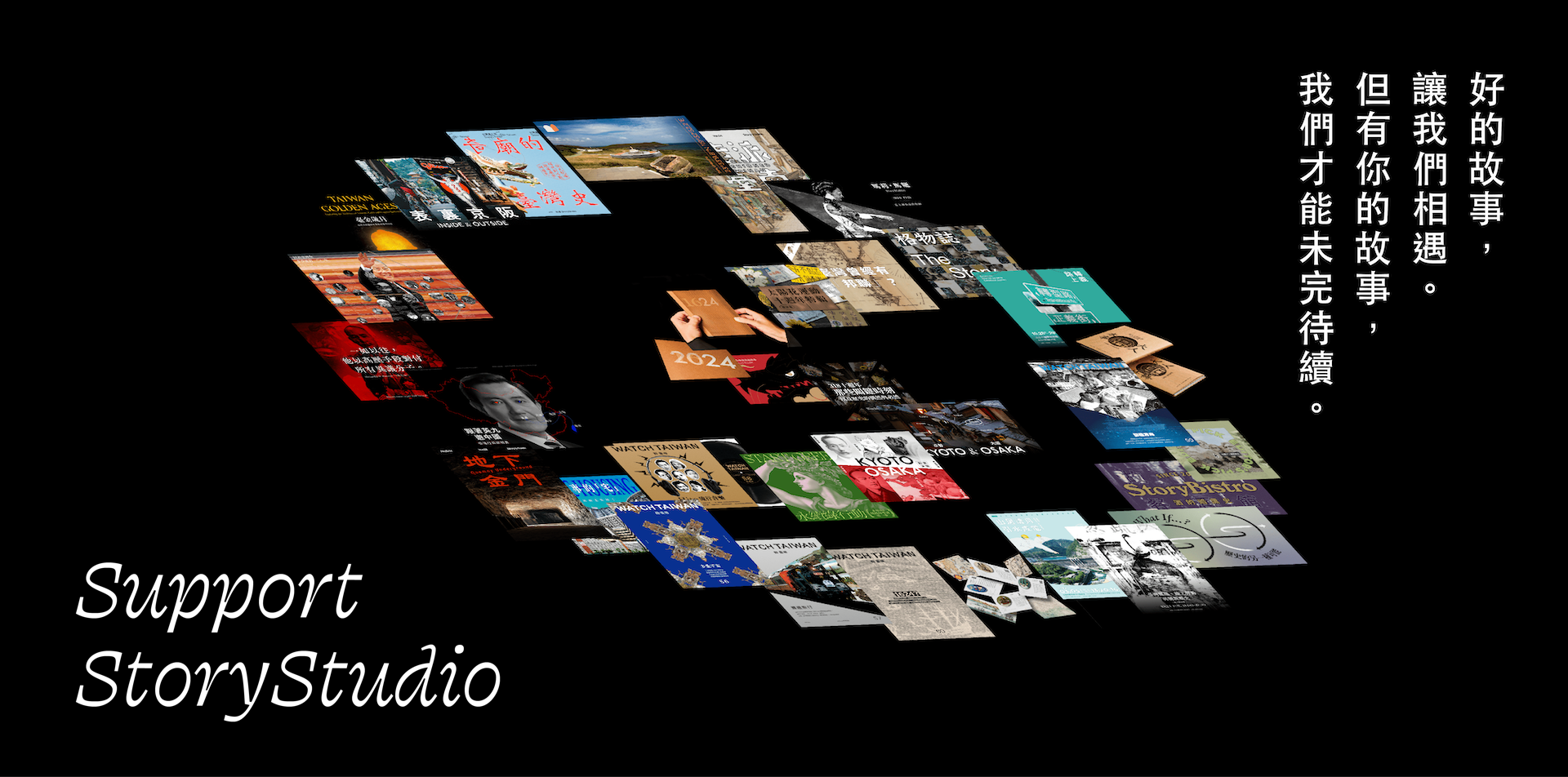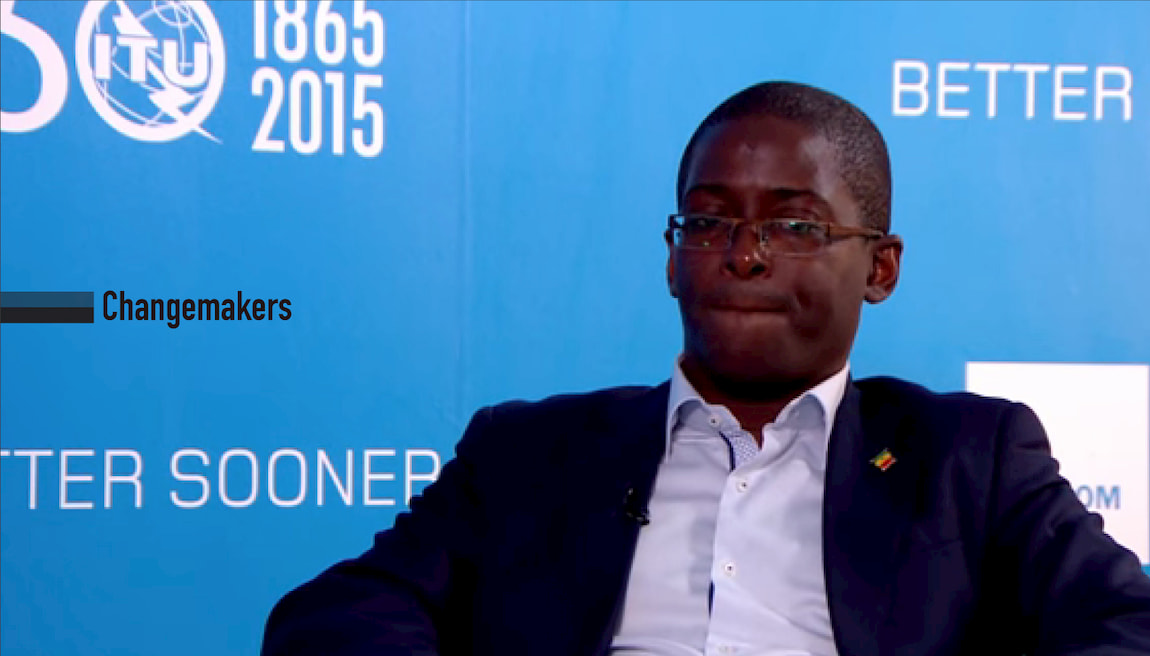On the morning of a normal day, a crowd of students gathered in the neighborhood of a museum in Mumbai. They did not create a din, neither did they litter. They simply wanted to visit the museum. However, residents along the road looked out from their windows. Some of them even approached Gloria de Souza, the teacher leading the students, and accosted her angrily.
2 hours later, Gloria, with disheveled hair, was dragged to the principal’s office. The school gate was inundated by parents who wanted to know what had happened. After much pushing and shoving, they were only able to hear Gloria’s last sentence clearly:
It was ‘Ashoka’ who gave me the money.
In the 1970s and 1980s, many parents in India criticized Gloria’s environmental studies (EVS in short). According to them, children were treated like guinea pigs. No one would have imagined EVS would gain popularity among millions of students 10 years later. The Indian government even included EVS into its national curriculum to replace cramming.
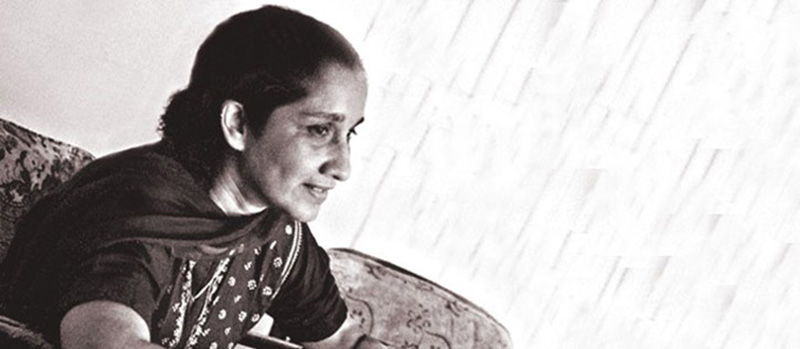
Also in the 1980s in faraway Palmares de Sul, Fabio Rosa knocked on doors to ask for a cattle from locals in exchange for electricity supply for a household that can last an entire year. The price offered by Fabio was only one-tenth of that offered by the Brazilian government. Before Fabio’s offer, each agricultural household in Brazil had to pay USD 7,000 (around NTD 210,000), 3 times higher than the average household income, for electricity per year.
In the 1980s, electricity was controlled by the military junta in Brazil, which prioritized demand from cities, large farms, and factories. Therefore, one-third of small agricultural households that grew rice and raised cattle did not have access to electricity in Palmares do Sul. To solve this issue, Fabio and the military junta reached an agreement, spending three years building a grid. This project enabled small farmers in Brazil to engage in agriculture by providing them access to electricity and water.
Fabio was not rich. He was just an agronomist and engineer. How did he carry out such a huge undertaking? The answer again is Ashoka. Ashoka covered Fabio’s living expenses and provided research fundings and consultation support so that Fabio did not need to rely on his partnership with the military junta.
Ashoka’s presence from the Andes to the Laccadive Sea enabled India to implement EVS and provided Brazilians with access to electricity. Anyone who harbors thoughts to change the world can receive assistance from Ashoka.
Who is Ashoka?
Ashoka was the 3rd Indian emperor of the Maurya Dynasty. He ruled a large part of the Indian subcontinent. He spent his youth on conquests and latter part of his life promoting Buddhism. In comparison, the modern Ashoka is an organization committed to cultivating social enterprises. The founder is an American who leads a smooth and successful life.
A Street Movement Participant, White House Staff Member, and a Man Who Loves Asia
The appearance of Bill Drayton, the founder of Ashoka, does not project the image of his powerful organization. He sports a pair of thick glasses, over which a strand of hair usually dangles, wears unfashionable suits with five pens, a pile of notepapers, and a comb in the pockets. He is a soft speaker.
“He is the kind of person that you have never met before. Even a gale would not want to be in his path,” said an old friend of Drayton back in Yale.
“But Bill Drayton has a brain that could win him a Nobel Prize and an astonishing will for working.”
“This man is extremely disciplined. His strength comes from his wisdom and intelligence. He knows how to run an organization and understands how the world operates.” These attributes show that Drayton is a pragmatic social entrepreneur.
David Gergen, the presidential advisor to many US presidents, has called Drayton the "godfather of social entrepreneurship”. And in 2008, Drayton was also named a "visionary" as one of the Utne Reader magazine's "50 Visionaries Who Are Changing Your World".
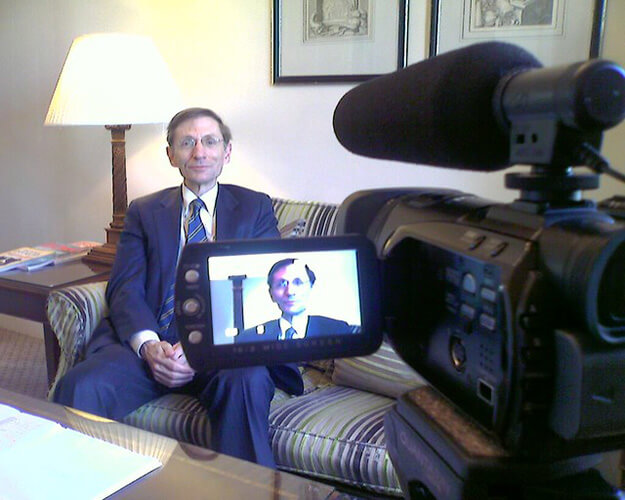
Drayton’s parents were explorers, musicians, and anti-slavery abolitionists. He was probably influenced by such a family background. After graduating from renowned universities like Harvard and Yale, he participated in a few environmental protection movements and was hence considered as an environmental activist. He later served in the Environmental Protection Agency.
Drayton has been providing assistance for developing countries. Despite encountering some obstacles along the way, he has not been through severe hardships.
For instance, Drayton loves Asia. During high school, he founded Asia Society, which became the school's most popular student organization. During the early phase of development of Ashoka, he traveled between Asia and the US many times, but was still unable to attract any major funding after 5 years. The setback in Asia did not prevent Drayton from further developing his career. In 1984, Drayton received a call telling him that he had been awarded a MacArthur Fellowship. He immediately returned to the US to start his business.
The first project that Ashoka sponsored was the EVS invented by Gloria in India.
Social Enterprises Do Not Necessarily Make Money. However, Social Entrepreneurs Do Not Have to be Responsible to the Market.
Many social enterprises are unprofitable. Drayton, however, has a different perspective. He believes that social entrepreneurs do not have to be responsible to the market. Therefore, Ashoka, founded by Drayton, does not accept government subsidies. The majority of its fundings come from NGOs, philanthropists, and bankers.
Drayton’s work experience with McKinsey & Company is reflected in the operational model of Ashoka.
Drayton founded Ashoka when globalization started to pick up and NGOs were burgeoning. Compared to NGOs, Ashoka is more like a venture capital, which is committed to seeking viable and potential investment targets that have not reached the mass market. Ashoka selects several elites in remote areas every year and provides them funding for living expenses and dedicated consultation services for three years, enabling them to carry out exchanges with entrepreneurs from around the world.
Ashoka selects its recipients based on four factors: creativity, entrepreneurial quality, social impact of person’s idea, and ethical fiber.
Those selected will be conferred the title “Ashoka Fellow”. Drayton calls these people “changemakers”. Changemakers not only have to change and surpass themselves but also change society’s ethos. In other words, these people have to identify issues, seize opportunities, and possess the ability to come up with solutions.
Changemakers searches for people who, in Drayton’s words , will leave their “scratch on history”.
Any business would require funding during the initial stage of development. However, “people participation” is the key to long-term development. Under such circumstances, “Everyone can be a changemaker.” The participation and legacy of “changemakers” can extend the influence of changed social concepts to greater audiences over time, creating a virtuous cycle. The greater the number of participants there are, the greater the number of people influenced.

Leaving a Scratch on the Medical Sector
Frank Hoffmann, the founder of Discovering Hands, is one of a changemaker.
Hoffmann discovered that blind people are able to detect masses more precisely than people with no visual disabilities or machines. Therefore, he developed a course to systemically train blind people to detect tumors through tactile examinations.
“We hope to offer our operational model so that our franchise partners will be able to offer courses to train ‘blind tactile examiners’. This will enable our organization and franchise partners to operate independently without the need for subsidies and assistance provided by governments.
“We train and supply medical tactile examiners, who will also land a stable job via the training.”
In recent years, Ashoka has been actively investing in Discovering Hands and other similar medical social enterprises. According to the results of the 2018 Global Fellows Study, Ashoka’s investment in the medical sector accounted for 17% of its total investment of the year.
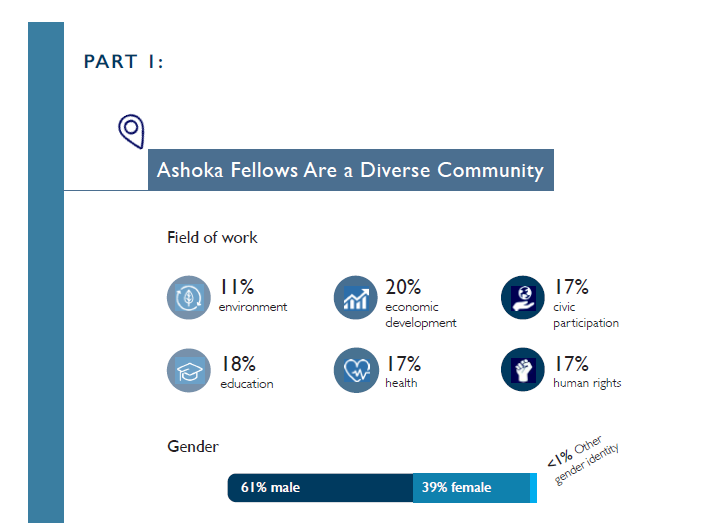
Are Social Entrepreneurs Idealists?
Some people may argue that social entrepreneurs are idealists.
However, Drayton believes that social entrepreneurs are not idealists because “Idealists can tell you what Xanadu is going to look like -- beautiful cities replete with magnificent domes, et cetera -- but they can't tell you how the sewage is going to work in Xanadu once you get there, and they certainly can't tell you how you're going to get there.”
“In contrast, social entrepreneurs are obsessed with the details of implementation. Early in life they spend quite some time engaging in self-designed apprenticeships to , to prepare themselves for challenges ahead.”
“Social entrepreneurs are not content just to give a fish or teach how to fish. They will not rest until they have revolutionized the fishing industry.”
Modern Ashoka
Modern Ashoka has laid the foundation for the development of social enterprises, sponsoring more than 3,500 entrepreneurs. The number of countries it has worked with has reached almost half the number of UN member states. 90% of enterprises assisted by Ashoka have become role models, and 86% of them have direct influence on national institutions.
Although Ashoka has not directly sponsored social enterprises in Taiwan, it has served as a role model for its counterparts in Taiwan. This proves that “changemakers” and their ideals can transcend borders. Taiwan’s Social Enterprise Insight is a case in point. It established its operational mode based on that of Ashoka when it was founded. In 2017, a team from Ashoka visited Taiwan. Social Enterprise Insight said then, “Ashoka's new projects very likely herald new global trends.”
As the founder of Ashoka, Drayton said optimistically, “We're in this wonderfully creative period where it is the time to build the intelligent institutions that will support a competitive social half of society. To my mind, the single major evolutionary task that our generation faces is developing the democratic revolution's institutions beyond business in the social arena, capable of ‘enhancing society’. And people are getting the idea that they can have a career doing this.”
This is the faith of an entrepreneur in 1998.
20 years later, people still have to fight cancer and various diseases. Substantial housing and clean water are not universally accessible.
But social enterprises have established a global presence.
A business organization that solves social, environmental, and welfare issues using its business model. For instance, a social enterprise may create jobs for the underprivileged and offer products or services that are socially responsible or eco-friendly. Profit made by social enterprises are used primarily for re-investment to continue solving social or environmental issues. Social enterprises do not work towards achieving maximum benefits for their investors or business owners.
